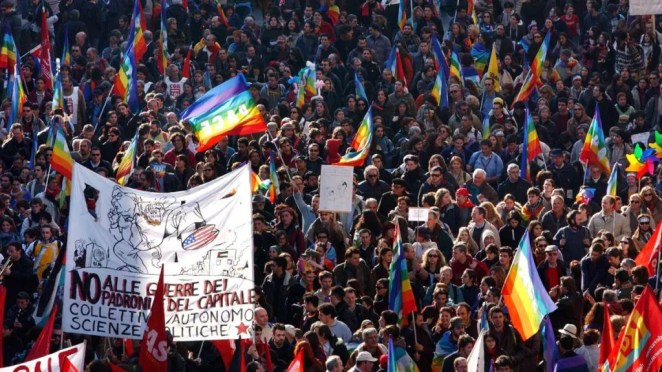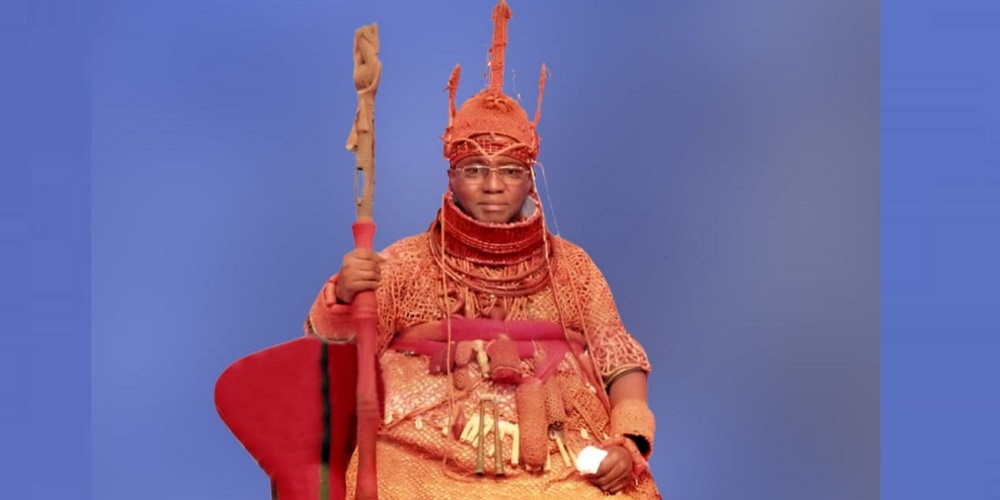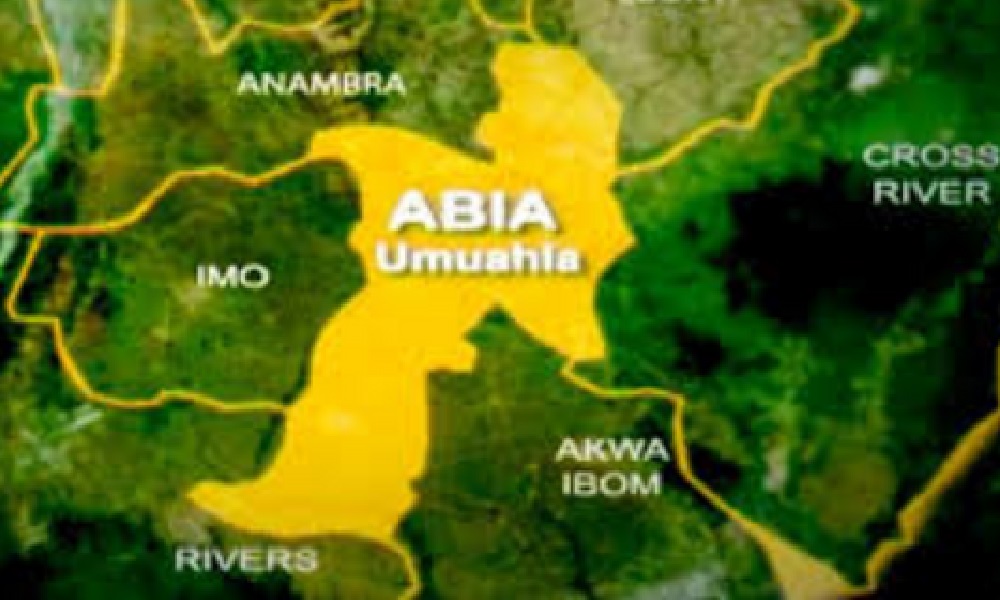News
10 biggest protests in history

Throughout history, some of the largest protests have played a crucial role in challenging unjust laws, holding governments accountable, and promoting change. At times, these demonstrations have mobilized massive crowds, becoming pivotal moments in world history.
Even though not all major protests achieve their goals, they leave a lasting impact on society, frequently inspiring similar movements around the world and across generations.
Here are ten notable protests in modern history amid the demonstrations in Nigeria and United Kingdom.
1. Indian Farmers Protest (2020-2021)

Image credit: Getty/ Hindustan Times
The Indian farmers’ protest began in late 2020, with farmers from Punjab, Haryana, and Uttar Pradesh protesting against three farm bills passed by the Indian government. The bills were seen as favoring large corporations over small farmers, leading to widespread demonstrations across the country. The protests, marked by massive rallies and a prolonged sit-in at the Delhi border, drew international attention and resulted in the repeal of the controversial laws in November 2021.
2. George Floyd and Black Lives Matter (2020)

Image credit: Getty/ OLIVIER DOULIERY)
The murder of George Floyd by a police officer in Minneapolis on May 25, 2020, sparked global outrage and a wave of protests under the banner of Black Lives Matter (BLM). Demonstrators took to the streets across the U.S. and worldwide, demanding justice for Floyd and addressing systemic racism and police brutality. The protests reignited conversations on racial inequality and led to calls for reform in policing practices.
3. Women’s March (2017)

image credit: Getty/ Bettmann
The Women’s March, held on January 21, 2017, was one of the largest single-day protests in U.S. history. In response to Donald Trump’s inauguration as President, millions of people—primarily women but including supporters of all genders—gathered in Washington, D.C., and cities around the world. The march focused on advocating for women’s rights, LGBTQ+ rights, and racial equality, and became an important moment in the broader women’s rights movement.
4. Anti-Iraq War Protests (2003)

credit: Getty Images News)
On February 15, 2003, millions of people worldwide protested against the impending U.S.-led invasion of Iraq. The demonstrations took place in major cities globally, including London, New York, and Sydney. The protests reflected widespread opposition to the war, which many viewed as unjust and based on questionable evidence. This global outcry had a major impact on public opinion and policy discussions regarding the Iraq War.
5. Tiananmen Square (1989)

(Image credit: Getty/ Archive Photos
The Tiananmen Square protests began in April 1989 with student-led demonstrations in Beijing calling for political reform, freedom of speech, and other democratic ideals. The movement grew into a mass protest involving millions. The Chinese government’s violent crackdown in June, known as the Tiananmen Square Massacre, resulted in numerous deaths and remains a sensitive and censored topic in China.
6. The Baltic Way (1989)
On August 23, 1989, approximately two million people formed a human chain spanning over 600 kilometers across the Baltic states of Estonia, Latvia, and Lithuania. Known as the Baltic Way, this peaceful protest marked the 50th anniversary of the Molotov-Ribbentrop Pact, which led to the occupation of the Baltic states by the Soviet Union. The demonstration was a powerful call for independence and played an influential role in the eventual dissolution of the Soviet Union.
7. People’s Protest (1986)
The EDSA People Power Revolution of 1986 in the Philippines was a non-violent protest that led to the end of Ferdinand Marcos’s 20-year authoritarian rule. Over four days, millions of Filipinos gathered along Epifanio de los Santos Avenue (EDSA) in Metro Manila, calling for democratic reforms and an end to corruption. The peaceful uprising, marked by mass demonstrations, prayers, and human chains, resulted in Marcos fleeing the country and Corazon Aquino, the opposition leader’s widow, being inaugurated as president, restoring democracy in the Philippines.
8. Earth Day (1970)

(Image credit: Getty)
The first Earth Day, held on April 22, 1970, was a major environmental protest that drew millions of Americans to advocate for environmental protection and raise awareness about pollution and ecological issues. Founded by Senator Gaylord Nelson, Earth Day played a crucial role in the establishment of the U.S. Environmental Protection Agency and the passage of key environmental legislation.
9. France in May (1968)

Image credit: Getty/ Michael Ochs Archives
The May 1968 protests in France were a series of student-led demonstrations and general strikes that challenged the political and social order. The movement, which began at universities and spread to involve workers and intellectuals, called for educational reform, labor rights, and broader societal changes. The protests had a lasting impact on French society and politics.
10. The Salt March (1930)
The Salt March, led by Mahatma Gandhi, was a 240-mile march to the Arabian Sea to protest British colonial rule in India. Starting on March 12, 1930, Gandhi and his followers aimed to defy British salt laws by producing salt from the sea. The march garnered massive international attention and was a crucial event in the Indian independence movement, highlighting the effectiveness of nonviolent resistance.
THIS STORY FIRST APPEARED IN VANGUARD
News
Oba of Benin to withdraw suit as Okpebholo restores rights

The Oba of Benin, Oba Ewuare II, and the Benin Traditional Council may withdraw the suits they filed against the state government as Governor Monday Okpebholo, on Sunday, restored the full statutory rights of the Oba and reversed the policies of the previous administration that impacted the Benin Traditional Council.
A statement on Sunday by Okepebholo’s Chief Press Secretary, Fred Itua, said the governor abolished the new traditional councils in Edo South created by the immediate-past governor, Godwin Obaseki.
Okpebholo also backed the Federal Government’s recognition of the Oba’s palace as the custodian of repatriated Benin artefacts looted during the 1897 British colonial expedition.
Providing an insight into the governor’s gesture, the state Attorney General and Commissioner for Justice, Dr Samson Osagie, said it signaled the resolution of the crisis between the Oba of Benin and the Edo State government leading to lawsuits duringt the Obaseki’s administration.
Osagies said, “The cases in court are cases which the Oba of Benin himself and the Benin Traditional Council instituted against the state government, and they are all civil matters. And you know that in civil suit or in any suit, parties are encouraged to settle amicably.
“So, if the parties are already settling and one side is already meeting the condition of settlement, the next step you are going to hear is that the party who went to court, which is the Oba of Benin, and the Benin Traditional Council, will instruct their counsel to withdraw the cases from court and that will be the end of the matter.
“The two parties are now settling for harmony and peace to reign, so the government is doing its own side of it.
“This statement is a prelude to discontinuing all legal proceedings with respect to the twin issues of the concession of the Oba Akenzua Cultural Centre by government to the Benin Traditional Council for 30 years and the creation of additional councils.”
The statement by Okepebholo’s Chief Press Secretary outlined the administration’s commitment to restoring the dignity and authority of the Benin monarch.
“This administration also hereby abolishes the new traditional councils in Edo South, created by the last administration,” the statement noted.
Additionally, Governor Okpebhol revoked the decision of the Obaseki’s administration to convert the Oba Akenzua II Cultural Centre into a motor park.
The government announced plans to restore the cultural centre to its original purpose.
“This administration is restoring the Oba Akenzua Centre to a suitable condition for its original purpose,” the statement added.
The governor also reinstated the financial entitlements of the Benin Traditional Council, ordering that the status quo before the creation of the abolished councils be maintained.
According to the statement, Okpebholo affirmed support for the Federal Government’s official gazette, which recognizes the Oba of Benin as the rightful owner and custodian of the repatriated Benin artefacts.
He also distanced his administration from the Museum of West Africa Art, instead backing the Benin Royal Museum project to house the artefacts.
“The Federal Government has also issued a gazette for the recognition of ownership and custody of the repatriated Benin artefacts to the Oba of Benin, Oba Ewuare II,” the statement explained. “Governor Okpebholo respects the rights and privileges of the traditional ruler of Benin kingdom… and pledges the support of his administration to ensure the monarch plays his role as the custodian of the rich cultural heritage of the Benin people.”
Okpebholo reiterated his administration’s respect for traditional institutions and vowed to avoid interference in the internal affairs of the Benin Traditional Council. “The Oba of Benin, as the father of all Benin people, is the sole custodian of the customs and traditions of the Benin people, and my administration respects customs and traditions in the land,” he stated, emphasising the government’s efforts to uphold the cultural and historical integrity of the Benin Kingdom.
News
Oyedepo’s jet can’t leave private airstrip without clearance – Keyamo

The Minister of Aviation and Aerospace Development, Festus Keyamo, on Sunday said there was no way the private plane of privileged Nigerians, including the Founder and Presiding Bishop of Living Faith Bible Church Worldwide, Bishop David Oyedepo, can leave the country directly from their airstrips without first securing clearance from relevant authorities.
Keyamo made the clarification when he was featured as a guest on Channels Television’s Politics Today.
His statement comes barely two months after members of the House of Representatives called for a revocation of airstrip licences issued to certain individuals and private organisations, citing security reasons.
The House also called for an immediate halt to new airstrip licences for individuals and organisations.
But Keyamo insisted that there was no way a plane or drone, even if it belongs to the military, can leave or come into the country without first getting a nod from the agency.
When asked if the airstrip of Oyedepo also passed through the same due process, Keyamo nodded.
He said, “Oh yes, absolutely. That’s no problem. They were only concerned about the fact that they thought that somebody can take off from a private airstrip and fly out of Nigeria or fly into Nigeria. It is not possible.
“You must land in an international airport first. Then the Customs, immigration and NDLEA will process you before you take off from there to your private airstrip. If you are also flying out, you must land at an international airport. You will go through Customs, immigration and all the normal process before flying out.
“So nobody uses an airstrip for any such purpose without seeking clearance. At every point in time, the authorities must approve.”
When quizzed on how many airstrips the country is operating at the moment, Keyamo said they are in the range of 40.
“We have a number of them, more than 40. For the federal airport, we have 23. The state airport has about eight or nine now.
“And then the airstrips are about 40 or thereabouts. I have been there myself,” he stated.
News
Abia bans unauthorised free medical outreaches

The Abia State Ministry of Health has reacted to the hospitalisation of some persons who attended a free medical outreach in Abiriba, Ohafia LGA, on Saturday, saying that the distribution of drugs to the public by uncertified persons was without the authorisation of the state government.
The Commissioner for Health, Professor Enoch Ogbonnaya Uche, who said this in a press release on Sunday, said that the organisers of the medical outreach did not obtain approval from the state government before embarking on the exercise.
He therefore announced that any medical outreach without authorisation from the Ministry of Health is illegal and can put the health of Abia people in jeopardy, warning that those who do so would be made to face the full wrath of the law.
DAILY POST recalls that many people were rushed to the hospital on Saturday at Abiriba after developing some medical emergencies on return from the medical outreach organised by a group.
According to Processor Uche, preliminary reports indicated that medications distributed during the outreach may have caused adverse drug reactions among unsuspecting recipients, even as he said that the identified victims of these untoward medical events are currently receiving medical attention at designated public health facilities within the state.
“Our dedicated healthcare personnel are working assiduously to stabilise and treat affected people. The Abia State Ministry of Health is deeply concerned by the dire consequences and high risk posed by unauthorised healthcare activities. We wish to hereby warn the public to be cautious of individuals and groups organising unapproved healthcare events,” said the health commissioner.
-

 News15 hours ago
News15 hours agoJust in: Dangote Refinery reduces price of petrol to N970 per litre
-

 Metro18 hours ago
Metro18 hours agoNDLEA nabs businessman at Enugu airport for ingesting 90 wraps of cocaine +Photos
-

 Politics17 hours ago
Politics17 hours agoParty Crisis Escalates: PDP NEC Meeting Delayed for the Fourth Time
-

 News17 hours ago
News17 hours agoSAD! Roman Catholic Oldest Priest Monsignor Thomas Oleghe dies at 103
-

 News16 hours ago
News16 hours agoInsecurity! Bandits k!ll 7 farmers, burn 50 bags of maize in Niger state
-

 News11 hours ago
News11 hours agoObasanjo narrates how he escaped becoming drug addict
-

 News14 hours ago
News14 hours agoJoint Security Patrol Team wastes Kidnapper in gun duel along Enugu/Ukwu Road
-

 News11 hours ago
News11 hours agoWe saved $20bn after Petrol Subsidy Removal and FX Rate Reforms, Says Finance Minister








